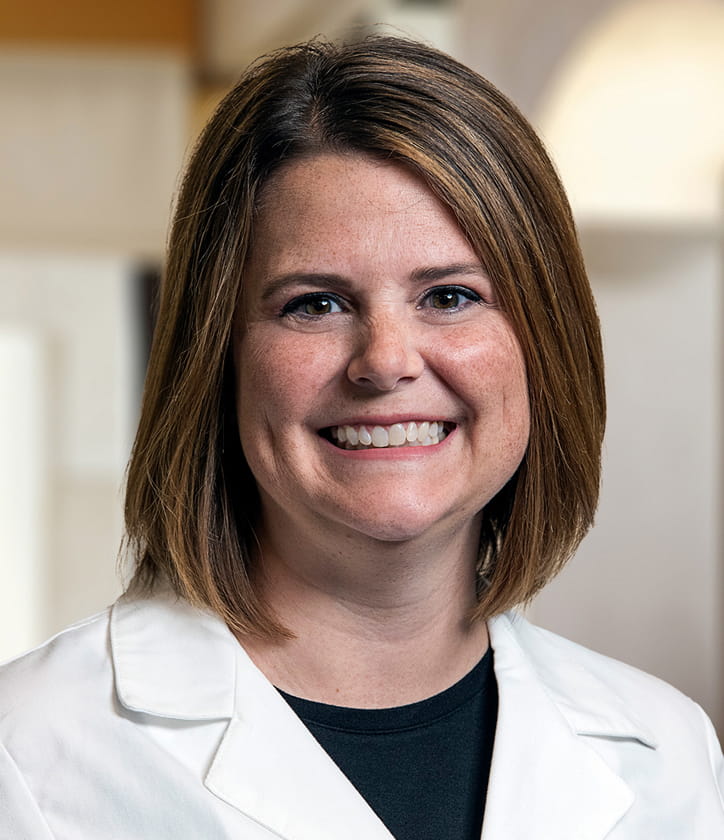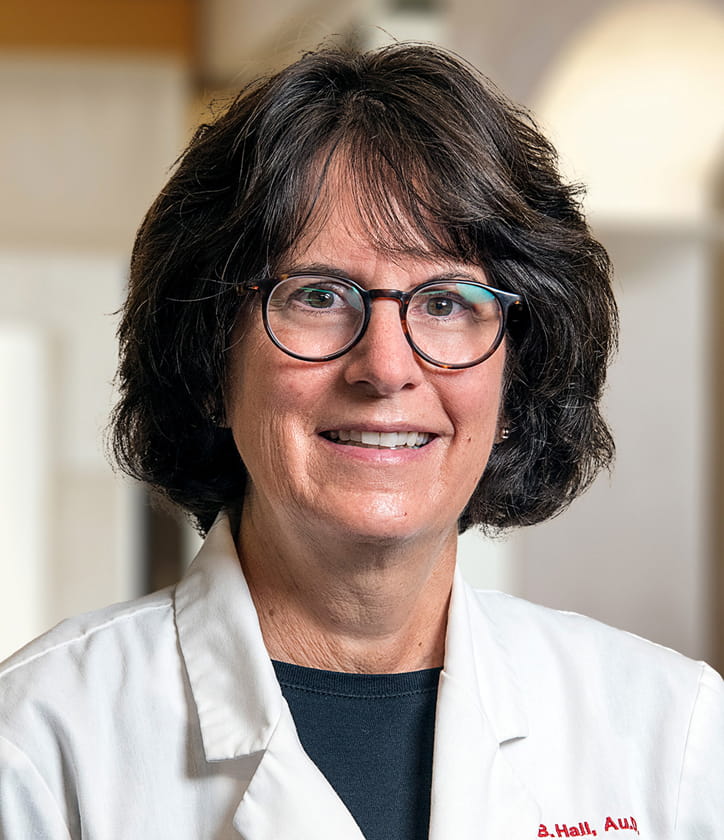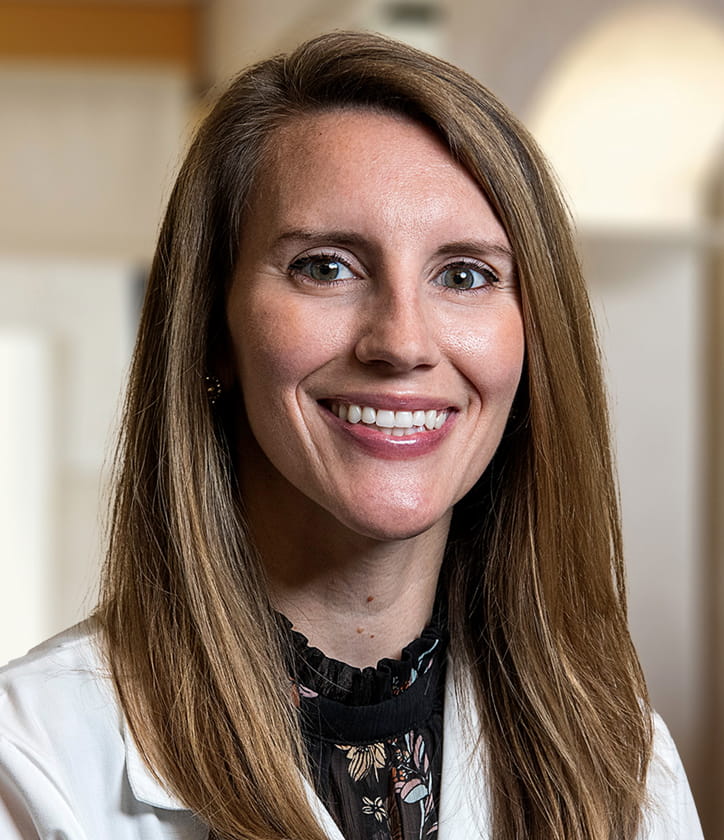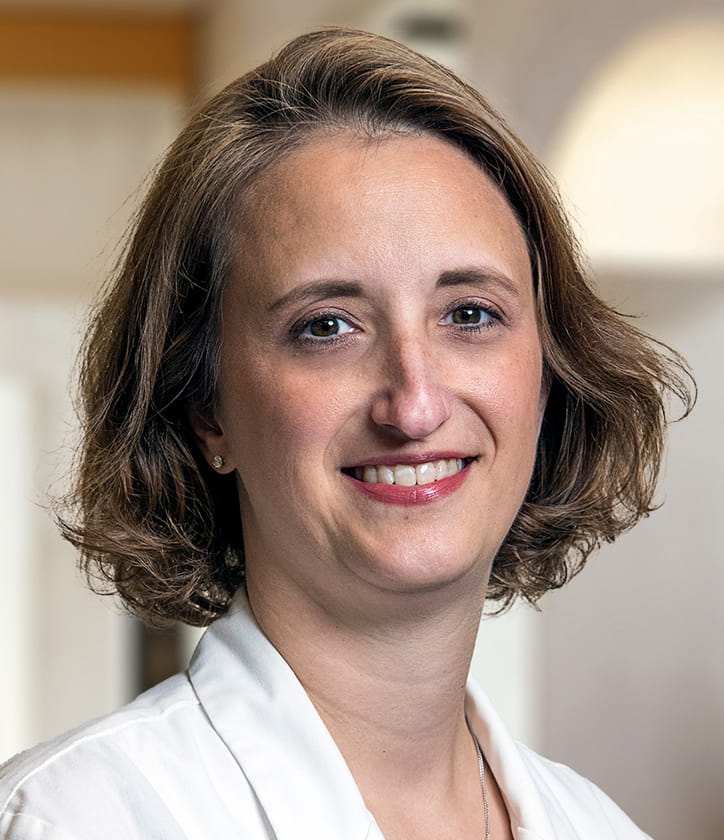
Is your patient struggling to hear despite wearing hearing aids? If so, a cochlear implant could be the solution.
At The Ohio State University Wexner Medical Center, we take a unique approach to cochlear implant (CI) patient care, drawing on the expertise of surgeons, audiologists and speech-language pathologists to fully understand and treat the many factors that determine patient success. We call this approach comprehensive adult auditory rehabilitation.
How does comprehensive adult auditory rehabilitation work?
Since 1988, our otology team has performed hundreds of cochlear implant surgeries and expanded our scope of practice to offer the latest devices, innovative research and unmatched rehabilitation services related to the auditory system.
Through adult auditory rehabilitation, our multidisciplinary team will work with you and your patient to set individualized communication goals, establish clear expectations and provide resources specifically selected to meet their most important communication needs. We’ll also collaborate with you to create a continuity of care, encouraging your patient to follow up with you for their future hearing or hearing aid needs.
How do I know if a cochlear implant is right for my patient?
Traditional adult CI candidates are those who have:
- Moderate to profound hearing loss in both ears
- Had limited success with hearing aids
- A strong desire to be part of the hearing world and communicate through listening, speaking and speechreading
Have the patient criteria for cochlear implants changed?
Yes! Read below to learn more about the recent CI criteria updates as they pertain to whom the procedure is best for. We also encourage you to register for our free upcoming virtual CME event, where we’ll discuss these updates in more detail.
The 60/60 guideline
The Ohio State University Wexner Medical Center recently began using the 60/60 guideline when referring for cochlear implant evaluations. This means that a referred patient can have an unaided pure tone average (PTA at 500, 1,000 and 2,000 Hz) of 60 dB HL or worse, and less than 60% unaided word recognition ability in the better ear.
Single-sided deafness
Patients with one good ear and one ear with moderate-to-profound hearing loss may be good candidates for cochlear implants. This patient population has many options, depending on the amount of hearing loss in the better-hearing ear. These options include CROS or BiCROS hearing aids, MED-EL ADHEAR, Cochlear Baha, Oticon Ponto, Cochlear Osia, MED-EL BONEBRIDGE or a cochlear implant (Advanced Bionics, Cochlear Americas, MED-EL).
Electric-Acoustic Stimulation (EAS) cochlear implant
Cochlear implant candidacy has expanded to include a diagnostic audiogram with normal or mild low-frequency hearing loss sloping to moderate-to-profound hearing loss. Each of the three implant manufacturers offers an option for an external device that utilizes an acoustic portion for amplifying low frequencies and a cochlear implant processor to electrically amplify the higher frequencies.
Can I enroll my patient in cochlear implant research at Ohio State?
The Ohio State Comprehensive Cochlear Implant Program has many ongoing research projects and we’re always seeking participants. Participation in these studies can even provide opportunities for patients who are not otherwise considered cochlear implant candidates.
We’re currently enrolling patients in studies across a broad range of research areas, including:
- Determining how intraoperative electrophysiological feedback to the surgeon improves hearing preservation (clinical trial) – led by Oliver Adunka, MD
- Identifying preoperative hearing, language and cognitive measures that can be used to predict and explain cochlear implant outcomes in adults – led by Aaron Moberly, MD, and Terrin Tamati, PhD
- Examining electrophysiological measures of nerve and brain functioning in cochlear implant users – led by Shuman He, MD, PhD
- Cochlear implantation in patients undergoing surgery for vestibular schwannoma or treatment of Meniere’s disease – led by Oliver Adunka, MD
- Evaluating the impact of cochlear implant on communication and quality-of-life outcomes – led by Aaron Moberly, MD
We would be happy to talk with you to learn how we can better meet the needs of your patients. To meet with our physicians and audiologists or to schedule a patient consultation, please email cochlearimplantteam@osumc.edu.







